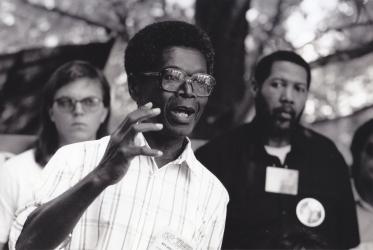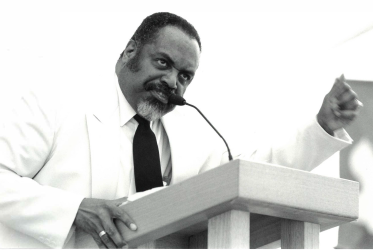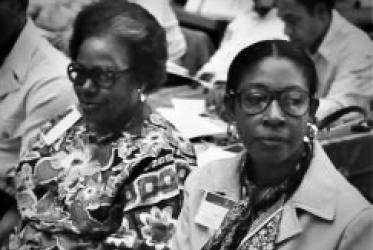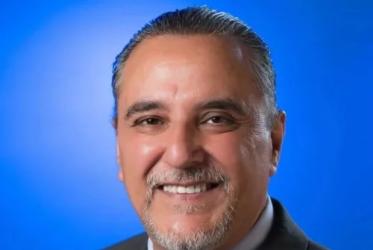A prolific writer and a prominent speaker, he promoted ecumenism and dialogue among religions.
The Swiss priest wrote more than 50 books and countless speeches advancing ecumenism. He died on 6 April at his home in Tübingen, Germany.
“Hans Küng had the courage and fortitude to consistently, throughout his entire life, ask difficult questions in his quest for ecumenism,” said WCC acting general secretary Rev. Prof. Dr Ioan Sauca. “He challenged the status quo not only within his own faith community but in larger ecumenical circles as well, and he had an unflagging commitment to interreligious and intercultural dialogue, as well as to the common good.”
In 1986, Küng published Christianity and the World Religions: Paths of Dialogue with Islam, Hinduism, and Buddhism, and, in 1991, Global Responsibility: In Search of a New World Ethic.
His relentless challenges to the church hierarchy caused his critics to call him the greatest threat to the church since Martin Luther.
He criticized church policy on governance, liturgy, papal infallibility, birth control, priestly celibacy, the ordination of women, mixed marriages, homosexuality, abortion, the meaning of hell and much more. In his later years he worked to find commonalities in the ethics of all religions as a means toward peace.
His vast writings include books on Thomas More, Freud, Mozart, Jewish views of Jesus, Eastern religions, life after death, and the existence of God.
He founded and led the Global Ethic Foundation, a research and teaching organization associated with the University of Tübingen that aims to promote ethical values worldwide and foster dialogue among religions and cultures.
Küng once called himself “an idealist without illusions.” He also once said, “I have not easy optimism, but serious hope.”
Küng was born on 19 March 1928, in Sursee, in the Canton of Lucerne, Switzerland. After studying philosophy and theology at the Pontifical Gregorian University in Rome, he was ordained in 1954. He finished his doctoral studies in theology at the Institut Catholique in Paris in 1957. After teaching for a year at the University of Münster, he joined the faculty at the University of Tübingen in 1960, where he remained until his retirement in 1996.






